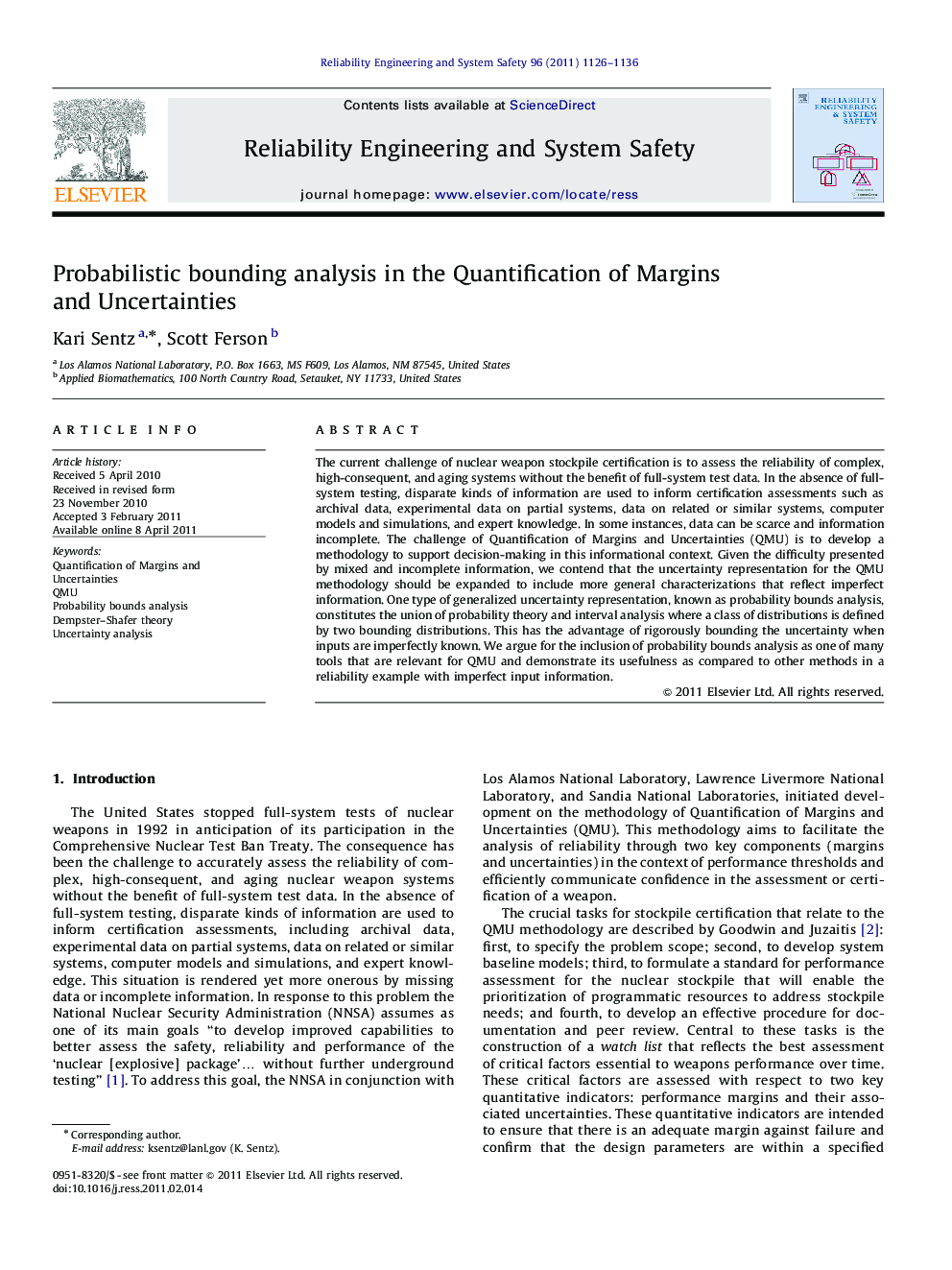| Article ID | Journal | Published Year | Pages | File Type |
|---|---|---|---|---|
| 806421 | Reliability Engineering & System Safety | 2011 | 11 Pages |
The current challenge of nuclear weapon stockpile certification is to assess the reliability of complex, high-consequent, and aging systems without the benefit of full-system test data. In the absence of full-system testing, disparate kinds of information are used to inform certification assessments such as archival data, experimental data on partial systems, data on related or similar systems, computer models and simulations, and expert knowledge. In some instances, data can be scarce and information incomplete. The challenge of Quantification of Margins and Uncertainties (QMU) is to develop a methodology to support decision-making in this informational context. Given the difficulty presented by mixed and incomplete information, we contend that the uncertainty representation for the QMU methodology should be expanded to include more general characterizations that reflect imperfect information. One type of generalized uncertainty representation, known as probability bounds analysis, constitutes the union of probability theory and interval analysis where a class of distributions is defined by two bounding distributions. This has the advantage of rigorously bounding the uncertainty when inputs are imperfectly known. We argue for the inclusion of probability bounds analysis as one of many tools that are relevant for QMU and demonstrate its usefulness as compared to other methods in a reliability example with imperfect input information.
